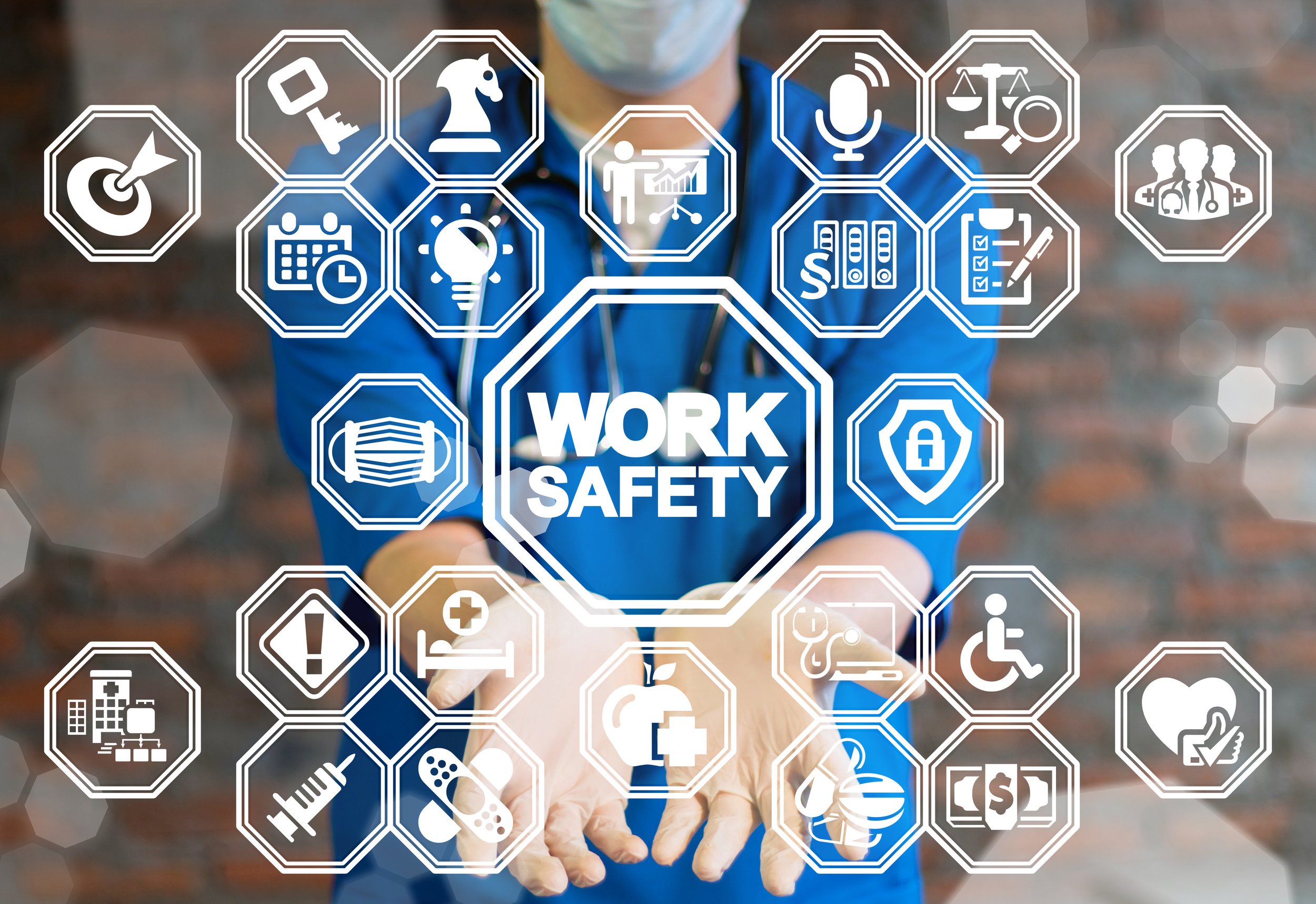Improving Workplace Safety: The Role of Culture, Training, and Technology in High-Risk Industries like Healthcare
Workplace safety in healthcare settings, particularly in light of the COVID-19 pandemic and now, involves careful coordination. Todd Larson, an expert in workplace and public safety at HonorHealth, highlights the need for a culture of safety, effective training, and the use of technology to improve communication and prevent workplace violence. Using a digital command center to monitor safety performance in real-time and predict potential hazards is critical for success and increases safety. Creating a safer work environment and preventing incidents of violence against healthcare workers starts with culture.
Secure the Future of Your Organization - Change Management
An unprecedented number of innovative technologies were deployed in response to the sudden need and rapid expansion of virtual health during the pandemic. Two years in and we have a strained healthcare system and a tired workforce. The need for ingenuity and effective change remains. Explore with us the cultural, practical, and paradigm shifts necessary to ensuring your organization not only recovers but thrives in this era of medical management modernization as we all emerge anew.
New Approaches to Patient Experience and Virtual Engagement Challenges
The shift to virtual care during the pandemic has necessitated unprecedented approaches to patient experience and engagement challenges. Managing the health of vulnerable patients with chronic illnesses like diabetes virtually is of particular concern. Emily Dumas, Manager of Care Transitions at the University of Alabama Birmingham Medical Center, discusses the need for engaging accessible tools, and what works and what doesn't work when it comes to supporting, engaging, activating, coaching, and ultimately partnering with patients.
Retain & Increase Revenue Through Automation While Complying with The No Surprises Act
Global Healthcare Leader Yan Chow, MBA, and Tyler Stowell, Senior Director of Healthcare Revenue Cycle Management, both of Automation Anywhere, discuss the formidable challenges and potential automation solutions to comply with the No Surprises Act.
With the initiation of the No Surprises Act, the burden shifts to the payer and providers to negotiate payments before the patient is sent a bill. With staffing shortages, this can be a huge challenge for back offices. Dr. Chow and Tyler illustrate how leading health systems are using RPA and intelligent automation to address these new regulatory challenges and realize dramatic benefits, including administrative efficiencies, greater workload capacity, error reduction, and significant cost savings.
Understanding the Perfect Storm of Vulnerabilities to Manage Cyberthreats
No matter how robust your organization's security stack is, vulnerabilities to intrusions still exist. Unmanaged cyberthreats can compromise your organization’s ability to perform its mission by putting critical assets, data, and services at risk. As more and more organizations move toward the cloud, keeping track of where sensitive data resides becomes increasingly difficult putting increasing pressure on data security teams. Melissa Lawlor, Director of Security GRC, of Hackensack Meridian Health, Dr. Mauricio Angee, Chief Security Officer, of the University of Miami, and Michael Ebert, Partner at Guidehouse Cyber Security Leader, discuss how healthcare organizations can competently manage critical privacy and security issues.
Optimizing the Digital Experience for the Disabled and Neurodiverse
The digital divide continues to result in inequitable healthcare and healthcare access — particularly for people with disabilities. Historically, people with disabilities have not been part of the conversation, let alone, involved in the development of healthcare technologies “from the ground up.” According to Dr. Brook Ellison, PhD, of Stony Brook University, it is estimated that 1 in 4 people either have short-term or long-term disabilities. People with disabilities often have complex medical and healthcare access needs that are not addressed.
Dr. Ellison, Valerie Mondelli of RevSpring, Kimberly Noel, MD MPH of 23andMe, and Jan Smith Reed of T-Base Communications, discuss how providing differently-enabled patients with bad technology effectively disables them, and how adaptive technologies can make a vast difference in access and quality of care.
Combating Healthcare Inequities and Improving Care for Patients with Disabilities
Organizations must combat inequity by better meeting patients where they are. As healthcare leaders, we are only just beginning to understand the importance of inclusivity when conducting a structural assessment of your institution’s readiness for doctors and patients with disabilities. As organizations struggle to support clinicians’ mental health and address burnout post-pandemic, it is important to explore ways to make the profession accessible to physicians with disabilities. Dr. Poullos, founder and Co-Chair of the Stanford Medicine Abilities Coalition (SMAC), a group composed of people with disabilities and their allies at Stanford Medicine, shares his vision for a digitally-enabled inclusive healthcare system and how organizations can combat inequity by better meeting patients where they are.
Banishing Burnout with Best in Class Technologies - Empowering Your Healthcare Workforce
Exhausted and overwhelmed, clinicians are reaching a breaking point as the COVID-19 pandemic enters yet another phase. Physicians have less autonomy, while suffering in unsupported environments. Technology developed to improve treatments, remote communication, and clinical data collection have become additional burdens to bear. Dr. Vivian Pender, President of the APA, Dr. Jon Ripp, Chief Wellness Officer at the Icahn School of Medicine at Mount Sinai, and Anthony Giordano VP at Sermo sat down to discuss how clinicians in an ever-changing workforce can adapt technology to encourage peer to peer connection, reduce burnout, and how building a refreshed healthcare system starts with leadership and listening.








